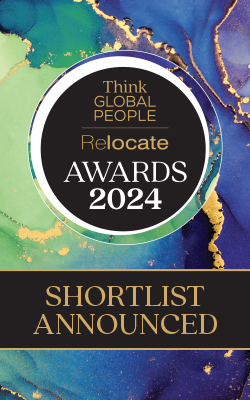Brexit? See the bigger picture...
The road to Brexit is filled with “deep holes”, asserted Toby Peyton-Jones, HR director for UK and North-West Europe at Siemens. But the focus should be beyond Brexit.

HR considerations for Brexit
Acknowledging both the scale of these political challenges and the emerging direction of travel around rights to work in the UK after 2019, Mr Peyton-Jones discussed the impact of the uncertainty and some of the questions it raises for EU nationals in the UK, their families and employers. For HR and employees, among the worries are how to prove residency and whether individuals will be able to do their job where it involves cross-border working. For companies with globally mobile workforces, this includes the question of what happens when someone has left the UK for a six-month assignment elsewhere and they need to prove residency.“Will this restart the clock?” asked Mr Peyton-Jones. “It leads to anxieties about the ability of people to do their jobs.”The new reality means considering where to gear the HR function's activities. “Once we know the rules, it will all settle down,” said Mr Peyton-Jones. For now, HR is policing the topic, looking at where the burden of proof of residency lies and who is responsible for proving it.What will Brexit change for employers?
This task is likely to drive a change in attitude from both employers and individuals, Mr Peyton-Jones believes. “We need to gear up now to be ready to send personal data to multiple government agencies,” suggested Mr Peyton-Jones. “We do it every day in other countries. For example, as foreign residents we register with the local police force.“We also need to keep this conversation going and about our concerns as business whether we can continue to be a good destination for talent from China, for example.” Siemens is currently ranked number nine among Chinese engineering graduates as employer of choice in the Universum ranking. It joins Google, Microsoft and Apple as the only international companies in the survey of almost 80,000 graduates.Read more from the IRN's Brexit HR series:
- Timing perfect for first HR forum in IRN Brexit series
- How can HR have a voice in the Brexit negotiations?
- Does HR analytics have a role in Brexit preparations?
- The head, heart and brain of Brexit: HR's role in managing uncertainty
Global megatrends and the impact of Brexit
From Mr Peyton-Jones’ view, as well as these immediate issues, Brexit is bringing more seismic changes affecting work, business and the economy into sharper focus.The economic shift to Asia, digitalisation of processes and services, artificial intelligence and automation, demographic change and issues around quality care for older people, and urbanisation are as pressing. These raise questions around how can we produce clean energy for mega-cities and how will the workplace and nature of work change.“We’ve seen how Brexit is throwing complexities at us. But the message is don’t just prepare for Brexit – prepare for the future,” said Mr Peyton-Jones.HR, skills and the future of work in a digital age
The challenge of Brexit is adding to the existing skills shortages in engineering and the NHS. Estimates suggest around 20,000 roles are left vacant annually. At Siemens, “apprenticeships are the engine room of Siemen’s success.”Four of its senior team started in this route. “We know how it works,” said Mr Peyton-Jones, talking of the skills-demand and employer-led approach. “We have to get it going nationally."With the “rate of learning being outpaced by the rate of change and technological progress,” the scale of this challenge is significant. “This is an uncomfortable and difficult point,” said Mr Peyton-Jones.“It is critical employers and employees have the attributes to manage this, and understand that the changes we are experiencing are not linear, but happening at different rates and all around us.“The move from the physical world to the virtual world is happening fast. From big data to computers that learn as well as analyse. The use of big data will give access to new business models never even thought of before.”Responding to complexity with agility
Agility is the key to improving companies' and individuals' ability to learn, adapt and work with complexity.For Mr Peyton-Jones, this means embracing co-creation, inclusion and diversity in order to innovate, learn and grow and share skills. It also means being networked across boundaries, project-focused and working in the virtual realm. Leaders too need to refocus around a their company's value to society, capabilities and trust. “Culture is the biggest play leadership can make,” he continued. “We are moving from the machine mindset to the ecological mindset of connectivity to co-create the future.“This is all about enablement and leaders’ ability to define a field of endeavour."HR in the brave new world after Brexit
Finally, Mr Peyton-Jones proposed two paradigm shifts are "reaching a tipping point for the world of work." These are moving from the physical to the virtual world and going from the managed to autonomous, for example around big data and learning. His message for HR was “If you in HR are not on the automation journey for administration and routine tasks, get on it!”“Today, HR is sleepwalking. We still talk about competency, job profiles and everything linked to corporate structure. A lot of that will go to be replaced by systems that reinforce project work, flexibility and empowerment.“Yes, Brexit is important, but not in terms of the long-term health of your business.”Look out for more Brexit planning news and features in the upcoming Autumn 2017 issue of Relocate Global magazine. Reserve your copy here.
Access hundreds of global services and suppliers in our Online Directory Get access to our free Global Mobility Toolkit
Get access to our free Global Mobility Toolkit 
©2024 Re:locate magazine, published by Profile Locations, Spray Hill, Hastings Road, Lamberhurst, Kent TN3 8JB. All rights reserved. This publication (or any part thereof) may not be reproduced in any form without the prior written permission of Profile Locations. Profile Locations accepts no liability for the accuracy of the contents or any opinions expressed herein.




































